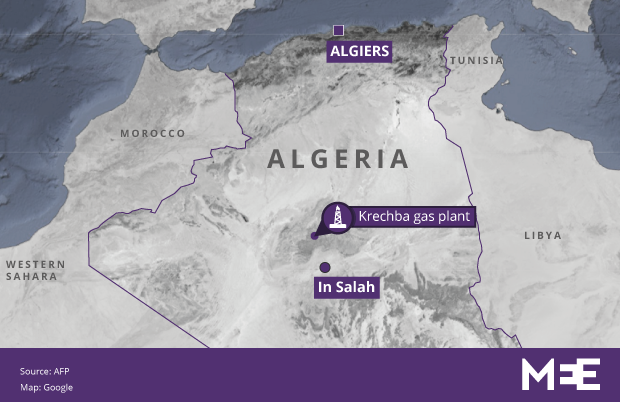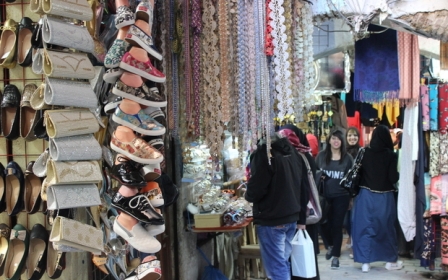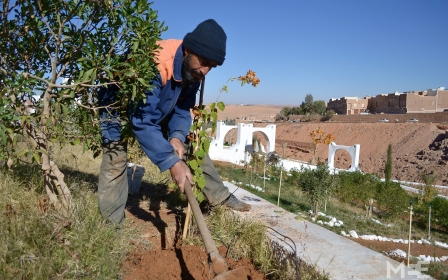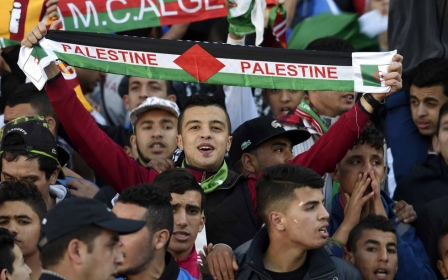Militants forced back after rocket attack on Algeria gas plant
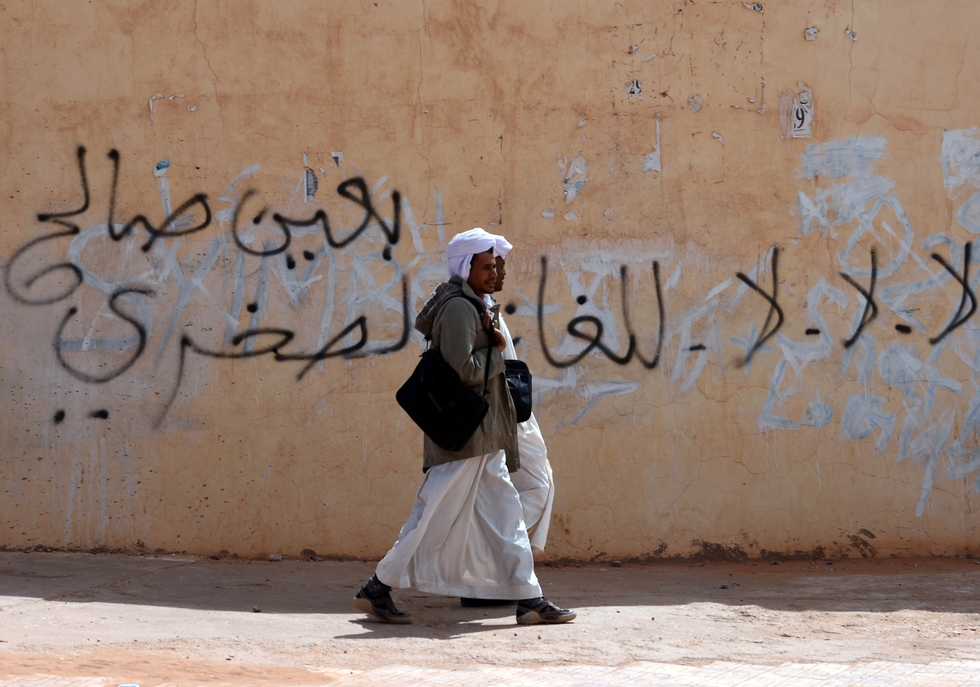
Militants fired rockets at a gas plant in southern Algeria early on Friday morning, but were forced back without inflicting casualties, workers told AFP by phone.
The In Salah facility, located at the Krechba gas field, was hit by explosives "fired from a distance" at about 6:00 am (5:00 GMT), according to a Statoil statement and an employee.
Al-Qaeda in the Islamic Maghreb (AQIM) claimed responsibility for the attack, saying on the group's Telegram channel that the attack comes within its "war on the interest of the Crusaders in every place," according to SITE Intelligence Group.
The Norwegian company, which jointly operates the plant with Algerian state-run firm Sonatrach and Britain's BP, said it had been in touch with three employees at the plant who were safe, but was continuing to investigate the situation.
A source with inside knowledge of Algerian security operations told Middle East Eye that the attack had been anticipated.
"Security forces knew of the attack, and they reinforced security around all gas plants since the Tinguentourine attack [in January 2013]. That's why attackers were only able to fire from distance using rocket-propelled grenades, so they stopped them," he said.
He added that the "alleged attackers didn't cross the border from Libya, they were in the country, as the border is closed and set as a militarised zone."
The source added that two of the attackers had now been killed, while others were still being chased by security forces.
In Salah town has previously been the location of a number of protests against the controversial fracking technique used to extract shale gas.
Scores of police officers and demonstrators were injured in protests at the project last March.
The Algerian government announced a $70bn investment in fracking technology last year, as prices for its main export, crude oil, fell to a six-year low.
However, the plans were put on hold following outcry from protesters.
“Between shale gas and water, the Algerian people will choose water; you think the Algerian state would be crazy enough to endanger the lives of its citizens?” Algerian Prime Minister Abdel Malek Sellal said at the time.
Environmentalists claim that fracking risks causing earthquakes and contaminating local water supplies.
Algeria, an OPEC member, is one of the largest exporters of natural gas in the world, with fossil fuel revenue accounting for 95 percent of its exports.
An estimated 16 billion cubic metres of conventional gas and 20 million cubic metres of non-conventional gas exist under Algeria, according to Sonatrach.
North Africa analyst Nadia Logab speculated that the attack on the gas plant could have been carried out in retaliation for the killing of three militants by the Algerian army in an operation near the Tunisian border last week, though she admitted it would have been a quick turnaround.
"It’s an attempt to embarrass the Algerian army in the region because Algeria is now trying to position itself as having a strong army and experience fighting those groups, given its experience in fighting terrorist organisations in the past," she told Middle East Eye.
A four-day siege and two rescue attempts by the Algerian army resulted in the deaths of 38 hostages, 37 foreigners and one Algerian.
Ten Japanese and five Norwegians were killed in the hostage crisis, as were six Britons at the site, which was jointly run by Sonatrach, BP and Statoil.
Logab pointed out that unlike at the time of the In Amenas attack, the Algerian army now had a presence in providing security to energy companies.
"In the past it used to be private security companies but now the Algerian army is involved in securing the oil and gas facilities in this country, which is quite good," she said.
New MEE newsletter: Jerusalem Dispatch
Sign up to get the latest insights and analysis on Israel-Palestine, alongside Turkey Unpacked and other MEE newsletters
Middle East Eye delivers independent and unrivalled coverage and analysis of the Middle East, North Africa and beyond. To learn more about republishing this content and the associated fees, please fill out this form. More about MEE can be found here.


